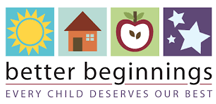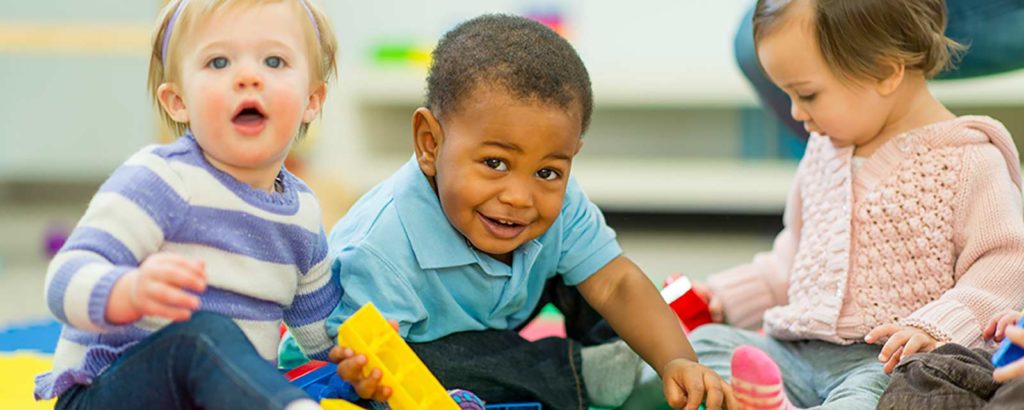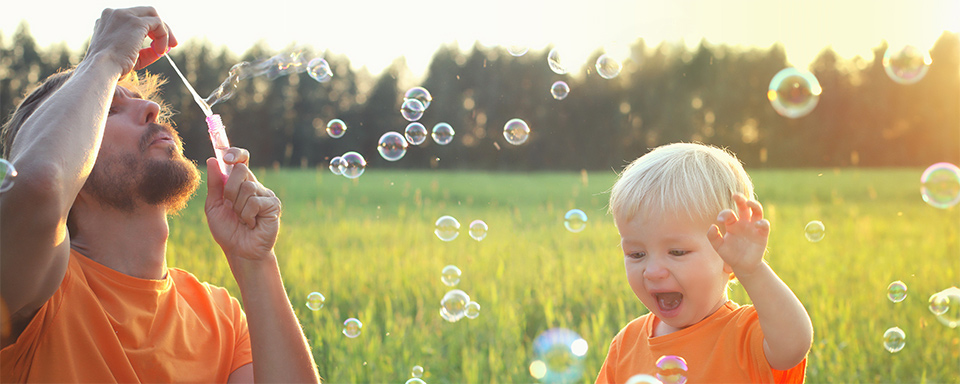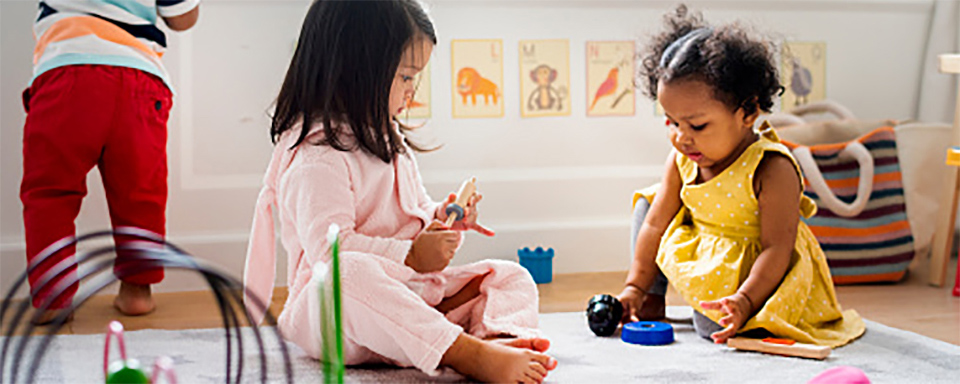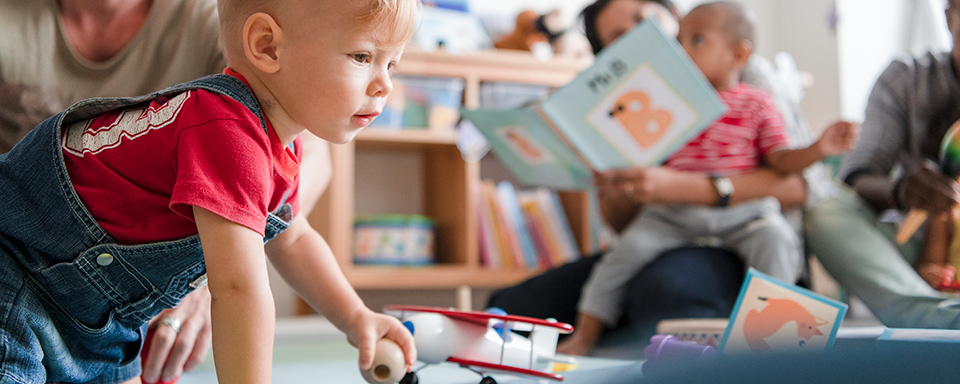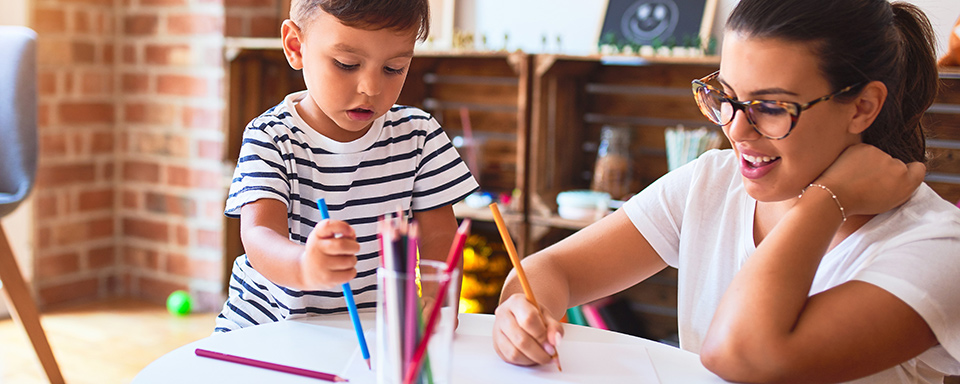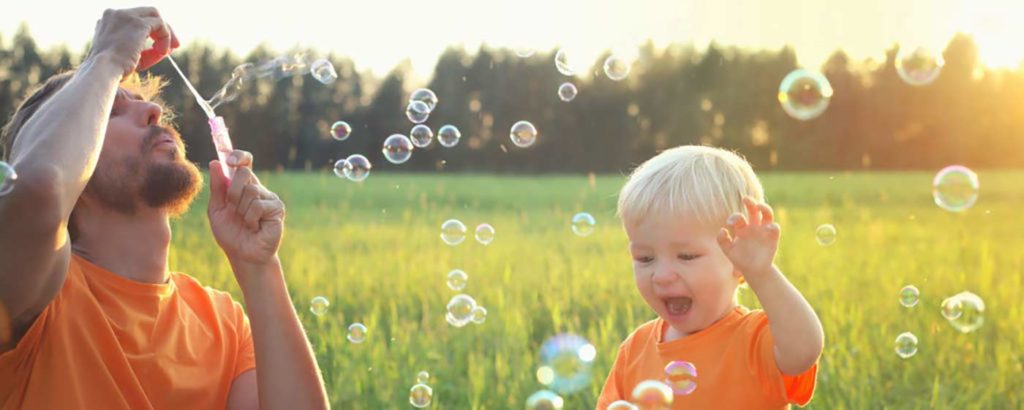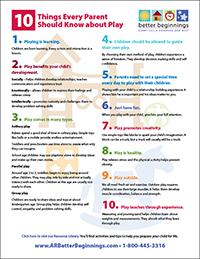1. Playing is learning.
Children are born learning. Every action and interaction is a lesson.
2. Play benefits your child’s development.
Socially – helps children develop relationships, teaches communication and experience trust
Emotionally – allows children to express their feelings and relieves stress
Intellectually – promotes curiosity and challenges them to develop problem solving skills
3. Play comes in many types.
Solitary play
Babies spend a good deal of time in solitary play. Simple toys like balls or a mobile provide endless entertainment.
Toddlers and preschoolers use time alone to create what only they can imagine.
School age children may use playtime alone to develop ideas and make up their own stories.
Parallel play
Around age 2 to 3, toddlers begin to enjoy being around other children. They may play side by side and not actually interact with each other. Children at this age are usually not ready to share.
Group play
Children are ready to share ideas and toys at about kindergarten age. Group play helps children develop self control, empathy and problem solving skills.
4. Children should be allowed to guide their own play.
By choosing their own method of play, children experience a sense of freedom. They develop decision making skills and self confidence.
5. Parents need to set a special time every day to play with their children.
Playing with your child is a relationship building experience. It shows him he is important and his ideas matter to you.
6. Just have fun.
When you play with your child, give him your full attention.
7. Play promotes creativity.
Use simple toys like blocks to spark your child’s imagination. A block can be a truck, but a truck will usually still be a truck.
8. Play is healthy.
Play relieves stress and the physical activity helps prevent obesity.
9. Play outside.
We all need fresh air and exercise. Outdoor play requires children to use their large muscles. It helps them develop muscle coordination, balance and strength.
10. Play teaches through experience.
Measuring and pouring sand helps children learn about weights and measurements. They absorb what they learn through play.
View/Download the PDF version here. (Right click and chose “Save Link As” to download)
Click here to visit our Family Resource Library. You’ll find activities and tips to help you prepare your child for life.
